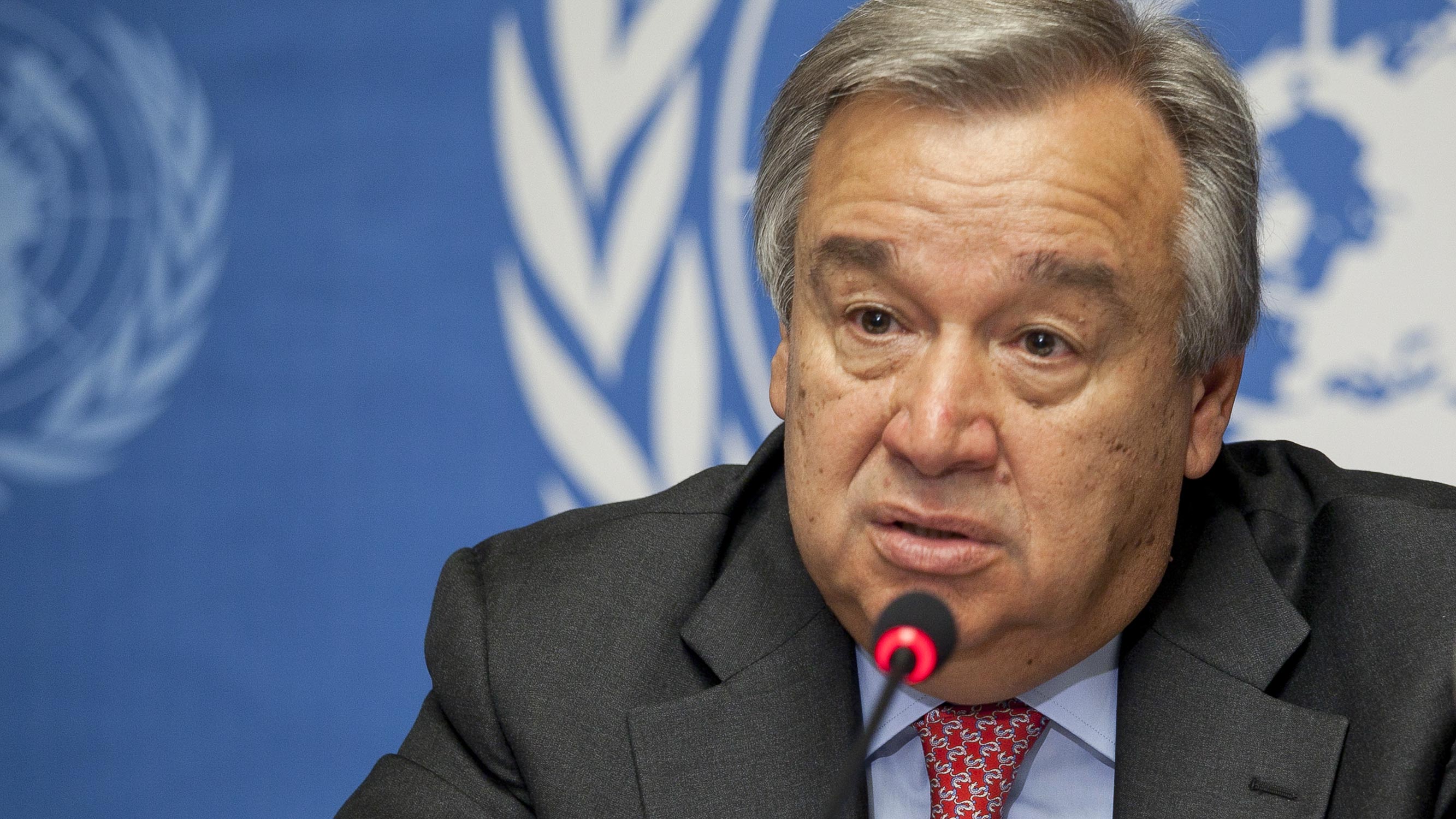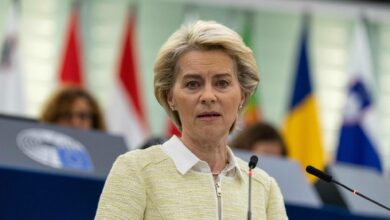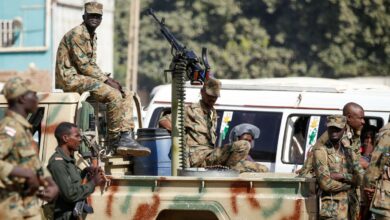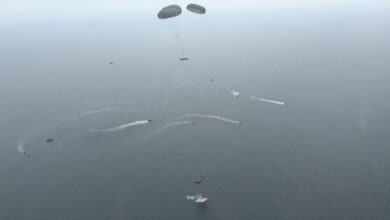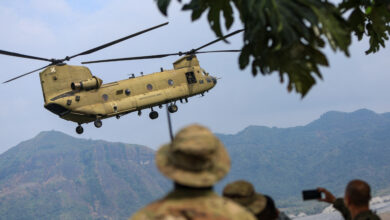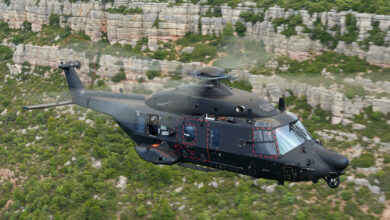UN says G5 Sahel needs more support to battle terrorism, as Macron signals force revamp
The G5 Sahel Joint Force faces persistent training and equipment shortfalls at a time of spiralling violence in the battle against militant Islamist groups in the region, according to a United Nations report released on Tuesday, November 12.
The report, submitted to the U.N. Security Council by Secretary General Antonio Guterres, came as the European Union’s diplomatic chief said the bloc will increase its presence and the level of support it gives to its partners fighting terrorism in the troubled Sahel region of sub-Saharan Africa. And later on Tuesday, President Emmanuel Macron pledged to soon take decisions on how France can help tackle violence in the Sahel, and signalled a revamp of the regional force.
Spearheaded by France and launched in 2017, the G5 Sahel Joint Force (FCG5S) is a planned 4,500-strong joint counter-terrorism force comprising troops from Burkina Faso, Chad, Mali, Niger and Mauritania, but the initiative has been undermined by lack of training, poor equipment and a shortage of funds.
“To fully play its role and yield more tangible results, the Joint Force will need more support,” Guterres said in the report which covers the period between May and October 2019.
Sahel security deteriorates
“The security situation continued to deteriorate across the Sahel region, with attacks by terrorist groups against civilians and security forces and persistent violence along community lines,” Guterres said.
Terrorist groups have strengthened their foothold across the Sahel, destabilising large swaths of territory and stoking ethnic violence, in Mali and Burkina Faso in particular, he said.
Many armed groups are active in the Sahel region, including Islamic State-affiliated groups, but the majority of attacks are attributed to JNIM, which formed in March 2017 from a merger of several smaller groups including the Sahara branch of al-Qaeda in the Islamic Maghreb, Ansar Dine and al-Mourabitoun. JNIM’s leadership has pledged allegiance to al-Qaeda leader Ayman al-Zawahiri.
“I remain deeply concerned about the spiralling violence in the Sahel, which has spread to coastal States of West Africa, along the Gulf of Guinea,” Guterres said. He had warned in July of a potential expansion of West African insurgency towards Ghana, Benin, Togo, and Ivory Coast.
Since January more than 1,500 civilians have been killed in Burkina Faso and Mali, and more than one million people have been internally displaced across the five countries – more than twice the number displaced in 2018.
“Burkina Faso experienced the most significant rise in internal displacement, with more than 486,000 displaced persons compared with 80,000 people in 2018,” Guterres said. Access has become increasingly difficult, but 12 million people are in need of humanitarian assistance.

Lack of funding hinders G5 Sahel
“The Joint Force continues to face significant training, capability and equipment shortfalls, which hamper its full operationalization,” Guterres said in the report. “The lack of air assets, armoured vehicles and transport capabilities and individual protection equipment compounds the threat posed by the use of improvised explosive devices.”
In July the European Union announced €138 million in additional funding for the force, having previously given €115.6 million, but despite pledges of hundreds of millions of dollars in financial support for FCG5S from international donors, funds have been slow to arrive.
Citing the European Union coordination hub, the report said that of the more than €430 million pledged, equipment worth €56 million has been delivered to date.
In July 2018, E.U. said it would finance the construction of a new FCG5S headquarters in Mali’s capital Bamako, after a complex JNIM bomb and gun attack on its previous base in Sevare. But the report notes that a permanent location has yet to be identified, and that following protests, the temporary headquarters was moved in June and again in September.
Guterres has long-called for regular U.N. funding for the force, but the U.S. has pushed back against direct funding, preferring instead bilateral funding for individual states.
The report notes that the U.S. “provided equipment and training to troops operating under the Joint Force, including $15 million to the armed forces of Chad, $15 million to Mauritania and $21 million to the Niger.”
A State Department official told The Defense Post last week that, using funding for financial years 2017 and 2018, “the U.S. obligated approximately $242 million in bilateral security assistance to the G5 countries, of which $111 million is going directly to G5-designated forces of each country.”
The G5 Sahel leaders have repeatedly called for a mandate under Chapter VII of the U.N. Charter – measures which could authorize the use of sanctions or military intervention in situations where peace and security is threatened.
President Mahamadou Issoufou said in July that Niger will use its position as a non-permanent member of the Security Council from 2020 to push for U.N. funding for the Joint Force.
“Failing that, what we are proposing is that there should be an international coalition of countries to fight terrorism in the Sahel, just as there was a coalition against Daesh in the Middle East,” he said.
Previously in May, Burkina Faso called for an international coalition to tackle terrorism in the Sahel.
Guterres said he was “particularly encouraged by the commitment made” by the Economic Community of West African States (ECOWAS) at their September 14 Extraordinary Summit on Counter-Terrorism, saying it “illustrates a willingness to take ownership and address the challenges facing their countries.”
ECOWAS leaders decided to mobilize “up to a billion dollars for the fight against terrorism,” Issoufou said after the meeting. The money, paid into a common fund from 2020 to 2024, will help reinforce the military operations of the nations involved, and those of the joint military operations in the region.

Slow operationalization
The report period “was marked by low-intensity activity” by the Sahel force due to the rainy season “and the impact of persistent equipment and training shortfalls on its operations,” Guterres said.
It noted two FCG5S operations conducted: Operation Dessi 2 between May 25 and June 8 in the border area between Burkina Faso and Niger; and Operation Ça’igha 2 between June 18 and 25 in the border area between Mali and Mauritania.
“More activities may have been undertaken by units operating under the Joint Force,” the report said, pointing to operations in September and October in the tri-border area between Burkina Faso, Mali and Niger when arms and ammunition were seized, and in the border area between Chad and Niger in which five suspected terrorists were arrested .
But, “there was no official communication” and these activities “were not reflected in the information received through the coordination mechanisms and other channels.”
But Gutteres said he was “encouraged by the comprehensive request received from the Force for all battalions, which illustrates readiness on the part of the Force to step up operations in the near future.”
At full operating capacity, the force will have seven battalions spread over three border zones, each covering a strip 50 km (30 miles) wide on both sides of the border. It is also expected that a counter-terrorism brigade will be deployed in northern Mali.
Macron signals G5 Sahel force revamp
“The Joint Force remains an important part of a series of national, regional and international security responses in the Sahel,” Guterres said.
“The responsibility to combat terrorism cannot be outsourced to the G5 Sahel countries, the region or the continent,” he added, saying that “the entire international community has a responsibility to contribute to the collective effort of tackling extremist violence.”
President Emmanuel Macron on Tuesday pledged to take decisions “in the coming weeks” on how France can help tackle violence in the Sahel.
He said progress had been made “on the security situation” and decisions would be announced on revamping the G5 Sahel Joint Force.
Following talks with his counterparts from Chad, Niger and Mali, Macron said France was “confirming and consolidating its commitment” to its military role in the region, and that additional military resources would be forthcoming by early next year.
On November 5, Armed Forces Minister Florence Parly said that France expects a new international special operations task force to deploy in Mali by 2020 to help train local troops. Around a dozen countries have been approached to join the unit, named “Takuba,” which means “sabre” in the Tuareg language.
The French plans for a new Sahel task force were first reported in early October. The aim is to improve basic training for Sahelien military forces, beginning with Mali, freeing up personnel from its Operation Barkhane mission, enabling them to focus on pursuing insurgents and preventing attacks.
Macron’s comments come just days ahead of a key counter-terrorism summit – at the request of France, members of the U.S.-led Global Coalition Against ISIS will meet in Washington on November 14. The meeting comes after U.S. officials said in August that the U.S. will seek additional contributions from the Global Coalition Against ISIS to combat the group and its affiliates in Africa.

Long-standing Sahel insurgency
Among topics Macron discussed with his Sahel counterparts was the northeastern Mali flashpoint of Kidal, a rebel-held town mainly ruled by Tuareg separatists since the 2012 rebellion which he said needed to be brought visibly under state control.
The 2012 Tuareg separatist uprising against the state was exploited by Islamist extremists linked to al-Qaeda who took key cities in Mali’s desert north.
France began its Operation Serval military intervention in its former colony early the next year, driving the jihadists from the towns, and the MINUSMA peacekeeping force was then established.
But the militant groups have morphed into more nimble formations operating in rural areas, and the insurgency has gradually spread to central and southern regions of Mali and across the borders into neighboring Burkina Faso and Niger. Large swathes of Mali remain outside government control, and inter-ethnic bloodshed is a regular occurrence.
The Serval mission evolved in August 2014 into Operation Barkhane, and roughly 4,500 French troops are deployed in the region, including around 2,700 soldiers in Mali.
But Barkhane has a growing international dimension, with European partners sending more troops and equipment. Denmark is to send two helicopters and up to 70 troops to support Barkhane in December and Estonia is to almost double the size of its Barkhane contingent in 2020. Chinook helicopters from the United Kingdom currently support the operation.
Operation Barkhane focuses activity in insurgent-hit Mali, Niger and Burkina Faso, and troops work alongside other international operations, including the the G5 Sahel Joint Force and the roughly 14,000-strong MINUSMA U.N. stabilization mission in Mali.
With reporting from AFP

